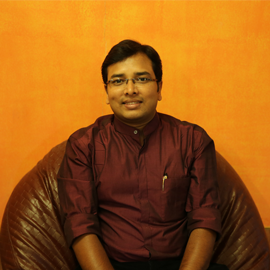Stasis? Why the Congress has put off Rahul Gandhi's elevation as chief

The move
- The Congress has postponed party elections by a year
- This means Sonia Gandhi will stay on as party president
- Rahul Gandhi\'s elevation to the top job has been delayed again
The meaning
- Rahul is reluctant or the party feels he\'s not yet ready
- The old guard threatened by Rahul has thwarted his promotion
- The Congress is not yet confident enough for a structural change
The Congress, it seems, just won't get out of the rut of indecisiveness. The party has postponed presidential and organisational elections by a year, just when it could have done with some fresh hands on the deck.
The decision, taken by the Congress Working Committee, effectively extends Sonia Gandhi's stay as president by at least a year. More important, it means Rahul Gandhi's elevation to the top job has been deferred. Again.
But what informed this move? There are two explanations. One, that Rahul is not ready to take up the job yet.
Two, that the old guard that thrived under Sonia, who now enters her 18th year as party chief, and was feeling threatened by Rahul has successfully thwarted his elevation.
Reluctant leader
If the first explanation has merit, then it strengthens Rahul's image as that of a reluctant leader. This may make him and the party vulnerable to attacks from the opposition at a time when the Bihar assembly election is just around the corner.
Political scientist Prof G Haragopal feels that Rahul is yet to demonstrate his mettle which is why his "probation period" has been extended. The Congress is an anarchic party, he points out, and to manage it, the leader must have skill and command respect. Sonia has both while Rahul has struggled to build such a presence.
Prof KC Suri: Congress has "consensual democracy" - it waits until all factions agree on a decision
KC Suri, professor of political science at the University of Hyderabad, says Rahul did try to be a bit assertive but didn't seem to click. His campaign looks insipid and not animated, Suri notes, adding that he needs the ability to articulate an issue well and sustain that articulation.
Old boys' club
Director of the Institute for Development and Communication, Chandigarh, Pramod Kumar, says that by postponing the leadership election, the old guard has given itself a year's escape from Rahul's Kamraj plan. This, Kumar says, may delay Rahul's project of rejuvenating the party.
It also implies that the Congress is not feeling confident enough to go for a structural transformation.
Maheshwar Singh, who teaches political and legal theory at Delhi's National Law University, says this is just a continuation of the Congress' old politics: the heir apparent isn't ready and the family doesn't want any outsider to take the top job.
Beyond the leadership, how would the CWC's decision impact the Congress?
Haragopal believes it's a sensible decision from the Congress' perspective as it allows the prospective leader more time to gain experience while retaining a leader who commands respect across the party.
Neither Sonia nor Rahul will help unless there is inner-party democracy, says Prof Ghanshyam Shah
Kumar says it will provide the party stability and continuity, two things it needs the most right now.
Considering that a leadership change could potentially have led to internal strife, the move to defer the elections seems well thought out.
Singh, however, disagrees. He says the move won't benefit the Congress as it reinforces existing notions about the party and would dissuade the social groups that have moved away from it from coming back.
The Congress, Singh asserts, is facing an existential crisis and must reinvent itself, not continue with its old-style politics.
Family first
The decision has also reiterated a truism: that when it comes to choosing the the leader, the Congress just won't look outside the Nehru-Gandhi family. And that the family itself won't let go of the power and allow a challenger to emerge.
Political scientist Prof Ghanshyam Shah says keeping Sonia on as president or promoting Rahul won't make much difference to the party's fortunes. What it really needs is inner-party democracy to bring about structural change, he adds.
Suri also believes that despite the fact that leadership renewal in the Congress has always been a tough task, the party must now look for a leader from outside the family.
He, however, rejects the claim that there is no democracy in the Congress. The party practises "consensual democracy", wherein it prolongs a decision until consensus is reached.
There are various factions, Suri points out, and the party waits for them to reconcile, as seems to be the case with the decision on leadership change.
It's a long shot, but if the Congress does pick its leader from outside the family, it would be the first step towards a structural transformation.
For now, observers are waiting to see whether the changes initiated by Rahul will bear fruit once the process of reorganising the party is complete. The wait has just been extended.
First published: 9 September 2015, 1:39 IST






![BJP's Kapil Mishra recreates Shankar Mahadevan’s ‘Breathless’ song to highlight Delhi pollution [WATCH] BJP's Kapil Mishra recreates Shankar Mahadevan’s ‘Breathless’ song to highlight Delhi pollution [WATCH]](https://images.catchnews.com/upload/2022/11/03/kapil-mishra_240884_300x172.png)

![Anupam Kher shares pictures of his toned body on 67th birthday [MUST SEE] Anupam Kher shares pictures of his toned body on 67th birthday [MUST SEE]](https://images.catchnews.com/upload/2022/03/07/Anupam_kher_231145_300x172.jpg)






